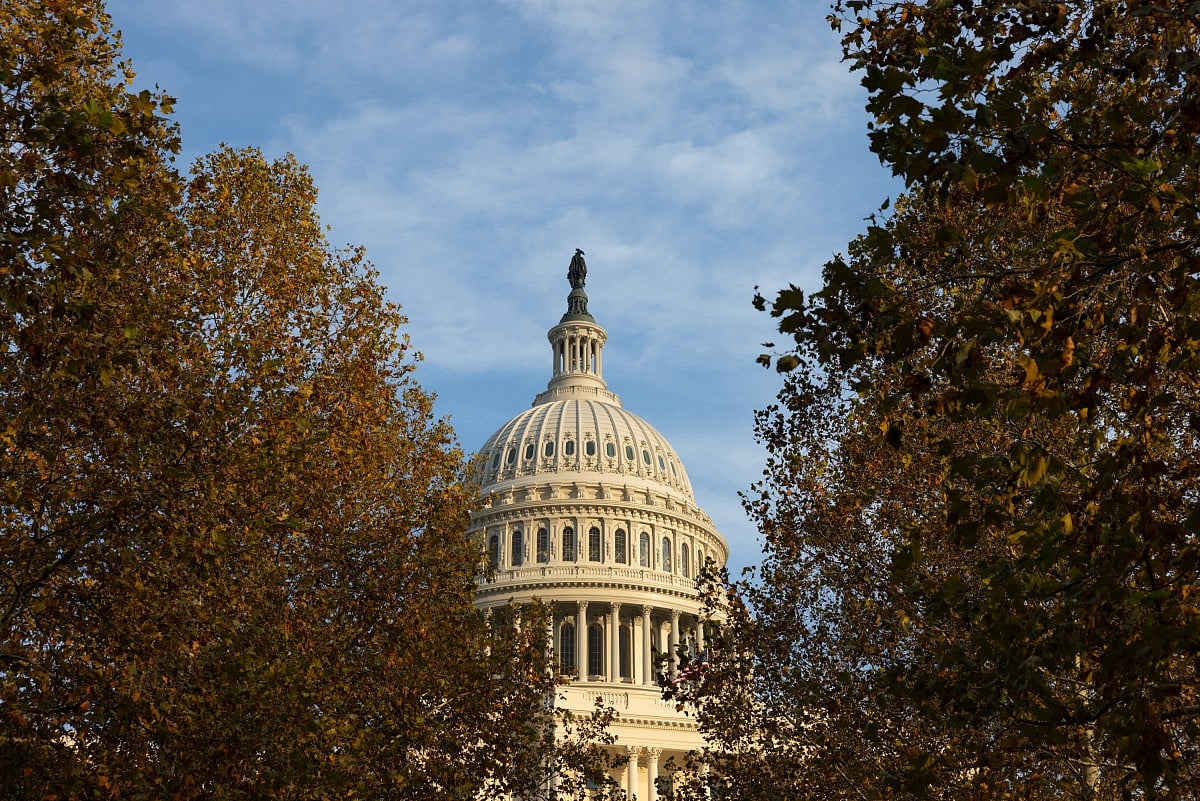Senate Compromise Bill Advances to End Government Shutdown
After weeks of uncertainty, a breakthrough in the Senate may signal an end to the longest government shutdown in U.S. history. A group of moderate Senate Democrats has joined Republicans in advancing a compromise funding bill, which has sparked both relief and dissent within the Democratic Party.
Senate Votes to Advance Compromise Bill
On Sunday, the Senate voted 60-40 to consider a bipartisan bill aimed at funding the government through late January. This decision came after a prolonged 40-day stalemate that left over a million federal workers unpaid and disrupted essential government services. House Speaker Mike Johnson urged lawmakers to return to Washington immediately to expedite the process, emphasizing the need for swift action.
Impact of the Shutdown
Since the shutdown began on October 1, various sectors have felt the strain. Air travel has been particularly affected, with hundreds of flight cancellations reported daily. The urgency to resolve the impasse has grown as federal workers and their families face financial hardships.
Key Provisions of the Compromise
The compromise bill, supported by a small group of moderate Senate Democrats—including Jeanne Shaheen, Maggie Hassan, and Angus King—aims to reverse many of the federal worker firings implemented during the Trump administration. It also ensures that federal employees will receive back pay once the shutdown concludes. However, the deal has not addressed the extension of health care subsidies under the Affordable Care Act (ACA), which has drawn criticism from many within the Democratic Party.
Senate Majority Leader John Thune has promised a vote on the ACA subsidies by mid-December, although the outcome remains uncertain. Thune expressed satisfaction with the funding for critical programs, stating, “After 40 days of uncertainty, I’m profoundly glad to announce that nutrition programs, our veterans, and other critical priorities will have full-year funding.”
Divisions Within the Democratic Party
The compromise has not come without backlash. Senate Minority Leader Chuck Schumer and most Democrats opposed the measure, arguing that it fails to adequately address the ongoing health care crisis. Independent Senator Bernie Sanders labeled the decision a “horrific mistake.” Progressive leaders in the House, such as Greg Casar, have also criticized the deal as a betrayal of those relying on the party to advocate for lower health care costs.
Potential Roadblocks Ahead
Despite the Senate’s progress, final passage of the bill could still face delays if any senator raises objections. Some Republicans, including Senator Rand Paul, have expressed concerns over specific provisions, which could complicate the legislative process. However, Thune remains optimistic that the bill can pass quickly.
Former President Trump has not yet confirmed whether he will sign the legislation but indicated that a resolution may be near. The ongoing debate over ACA tax credits continues to be a point of contention, with some Republicans open to extending subsidies but seeking new eligibility limits.
FAQs
What is the current status of the government shutdown?
The Senate has voted to advance a compromise bill that could end the government shutdown, which has lasted for 40 days.
How many federal workers have been affected by the shutdown?
Over one million federal workers have gone unpaid during the shutdown, facing significant financial difficulties.
What are the main points of contention in the compromise bill?
The compromise bill includes funding for federal workers but does not guarantee an extension of health care subsidies under the Affordable Care Act, leading to criticism from many Democrats.
Conclusion
The Senate’s recent vote to advance a compromise bill offers a glimmer of hope for ending the government shutdown. While the immediate future looks promising, divisions within the Democratic Party and ongoing debates over health care subsidies may still pose challenges. As lawmakers work to finalize the legislation, the focus remains on ensuring that federal workers receive the support they need.
The government shutdown, which began on October 1, has highlighted the complexities of bipartisan negotiations in a divided Congress. As lawmakers navigate these challenges, the implications of the shutdown extend beyond immediate financial concerns, affecting public trust in government institutions and the ability to deliver essential services.
The Senate’s compromise bill, while a step toward resolution, reflects broader ideological divides within both parties, particularly regarding health care policy. The ongoing discussions around the Affordable Care Act and its subsidies underscore the critical nature of health care in American political discourse, as lawmakers seek to balance fiscal responsibility with the needs of constituents.
As the legislative process continues, the potential for further negotiations remains, particularly if new issues arise or if additional amendments are proposed. The outcome of this bill could set a precedent for future funding negotiations and influence the political landscape leading into the next election cycle.
Also Read:
Bipartisan Bill Advances to End Government Shutdown







